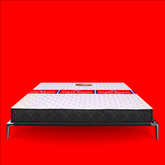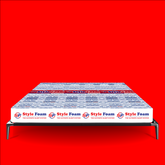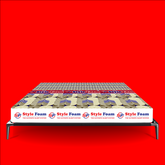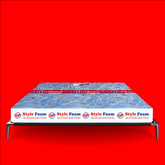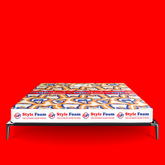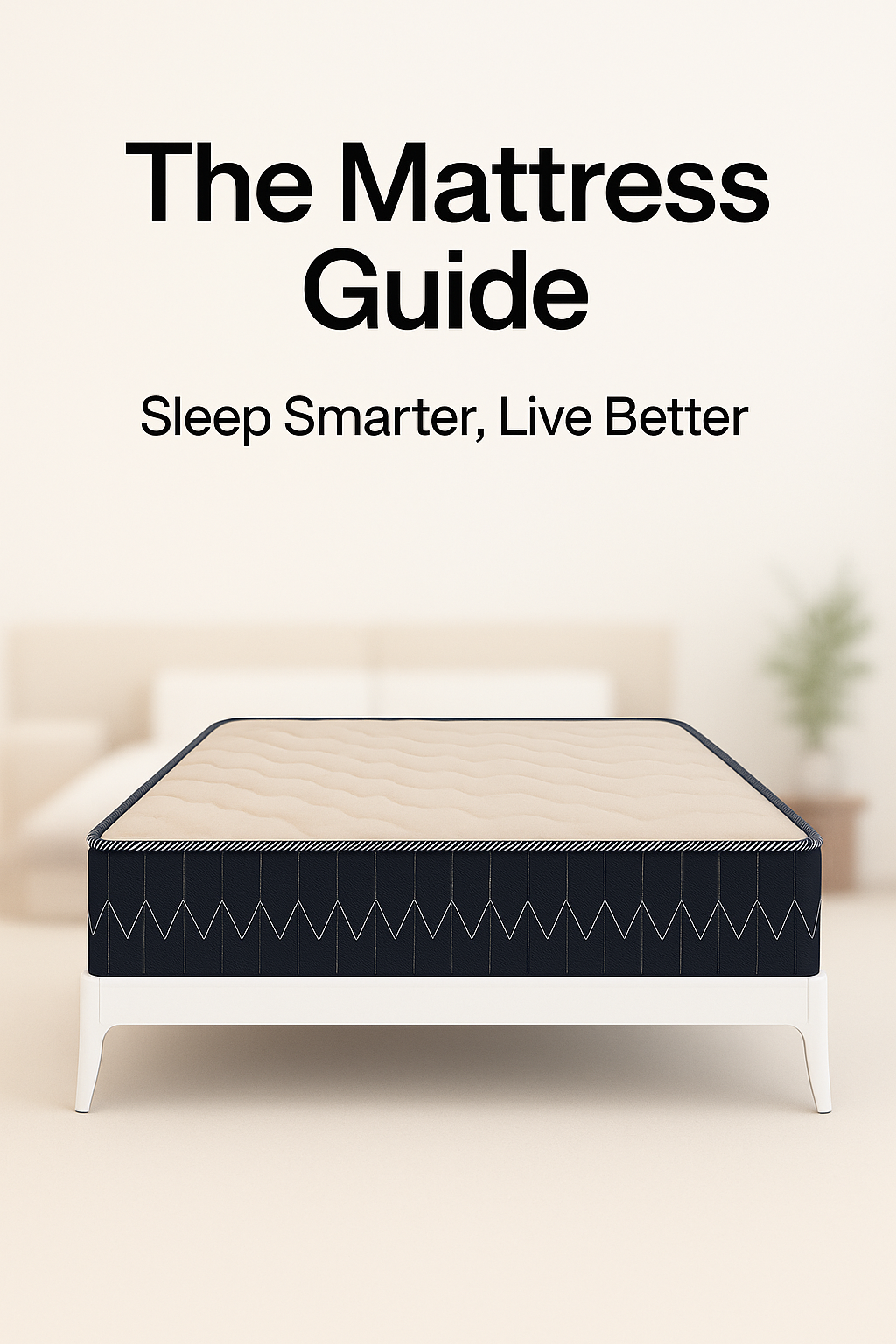Sleep is one of the most vital components of a healthy lifestyle, yet it's often one of the most overlooked. While diet, exercise, and mental health get the bulk of our attention, the secret weapon for improved health and productivity might just lie in your bedroom—your mattress. In this comprehensive guide, we’ll explore everything you need to know about choosing the right mattress, how it impacts your sleep, and why investing in a good one is investing in your life.
Why the Right Mattress Matters
The average person spends about one-third of their life sleeping. That means by the time you're 75 years old, you’ll have spent roughly 25 years in bed. The quality of that time heavily depends on the quality of your mattress.
A poor mattress can contribute to:
-
Chronic back and neck pain
-
Poor sleep posture
-
Interrupted sleep cycles
-
Increased stress levels
-
Fatigue and irritability
-
Reduced productivity
On the flip side, a high-quality mattress can support proper spinal alignment, reduce pressure points, and promote uninterrupted, restful sleep.
Types of Mattresses
Before diving into how to choose the right mattress, it’s important to understand the main types available in the market today.
1. Memory Foam Mattresses
Memory foam is known for its body-contouring properties. It conforms to your body shape, distributing weight evenly and relieving pressure points.
Pros:
-
Great for pressure relief
-
Excellent motion isolation
-
Good for side sleepers
Cons:
-
Can retain heat
-
Might feel too soft for some
2. Innerspring Mattresses
These are the traditional mattresses that use metal coils for support. Modern innerspring mattresses may include a comfort layer of foam or latex.
Pros:
-
Firm support
-
Great breathability
-
Budget-friendly
Cons:
-
Less contouring
-
Prone to sagging over time
3. Hybrid Mattresses
Hybrids combine the best of both worlds—coils for support and foam or latex for comfort. They aim to offer the pressure relief of foam with the support of springs.
Pros:
-
Balanced comfort and support
-
Good airflow
-
Suitable for all sleep positions
Cons:
-
More expensive
-
Can be heavy and hard to move
4. Latex Mattresses
Made from natural or synthetic rubber, latex mattresses are bouncy and durable.
Pros:
-
Naturally cooling
-
Long-lasting
-
Eco-friendly (natural latex)
Cons:
-
Can be costly
-
Might be too firm for some
5. Airbeds
Not to be confused with temporary air mattresses, luxury airbeds have adjustable air chambers for customized firmness levels.
Pros:
-
Customizable firmness
-
Good for couples with different sleep preferences
Cons:
-
Expensive
-
Requires a pump or electric component
How to Choose the Right Mattress
Choosing the perfect mattress isn't about picking the most expensive or the most popular—it's about what works best for your body, sleep style, and preferences.
1. Consider Your Sleeping Position
Your preferred sleep position has a major impact on what type of mattress will be most comfortable.
-
Back Sleepers: Need a medium-firm mattress to support the natural curve of the spine.
-
Side Sleepers: Do best with softer mattresses that cushion the shoulders and hips.
-
Stomach Sleepers: Require a firmer mattress to prevent the body from sinking and causing lower back pain.
-
Combination Sleepers: A responsive, medium-firm mattress is ideal for changing positions easily.
2. Think About Firmness Level
Mattress firmness is usually rated on a scale from 1 to 10:
-
1-2: Ultra-soft (too soft for most)
-
3-4: Soft
-
5-6: Medium
-
7-8: Firm
-
9-10: Extra-firm
Your weight also plays a role:
-
Lightweight sleepers (<130 lbs) may prefer softer mattresses.
-
Average-weight sleepers (130–230 lbs) often do well with medium-firm.
-
Heavier sleepers (>230 lbs) typically need firmer support to prevent sagging.
3. Consider Materials and Allergies
If you suffer from allergies or prefer organic products, consider:
-
Natural latex
-
Hypoallergenic covers
-
CertiPUR-US® certified foams (low VOCs, free of harmful chemicals)
4. Test the Mattress (If Possible)
Most online and physical retailers offer sleep trials ranging from 30 to 365 days. Take advantage of this opportunity. A mattress may feel different after a full night's sleep compared to a five-minute store test.
Mattress Lifespan and When to Replace Yours
Even the best mattresses don’t last forever. Most have a lifespan of 7–10 years depending on the material and usage.
Signs it’s time to replace your mattress:
-
You wake up with aches and pains
-
You toss and turn more than usual
-
Your mattress is visibly sagging or lumpy
-
You sleep better in other beds (e.g., hotels)
-
It makes creaking or popping noises
Mattress and Sleep Hygiene
Your mattress is just one piece of the sleep puzzle. To truly sleep smarter, integrate good sleep hygiene habits:
-
Stick to a consistent bedtime and wake time
-
Avoid screens an hour before bed
-
Keep your bedroom cool and dark
-
Use your bed for sleep only (not work or TV)
-
Invest in quality pillows and bedding
A great mattress complements these habits and creates a sleep environment that fosters deep, restorative rest.
Mattress for Special Needs
1. Mattresses for Back Pain
Look for medium-firm mattresses with good lumbar support. Memory foam and hybrids tend to work well for this.
2. Mattresses for Hot Sleepers
Cooling features to look for:
-
Gel-infused foam
-
Breathable covers (e.g., cotton or bamboo)
-
Coil systems that allow airflow
3. Mattresses for Couples
Motion isolation becomes key here. Memory foam or hybrid mattresses reduce partner disturbances. Also, consider split options if firmness preferences differ.
4. Eco-Friendly Options
If sustainability matters to you, consider:
-
Organic latex
-
Organic cotton covers
-
Mattresses with environmental certifications like GOTS or OEKO-TEX®
Mattress Myths Busted
Myth 1: A firmer mattress is always better.
Not true. The right firmness depends on your body type and sleep position.
Myth 2: You should flip your mattress regularly.
Not all mattresses are designed to be flipped. Many modern mattresses are one-sided. Instead, rotate your mattress every 3-6 months to prevent sagging.
Myth 3: A mattress topper can fix an old mattress.
Toppers can add comfort, but they won't solve issues like sagging or loss of support.
Caring for Your Mattress
To extend your mattress's life:
-
Use a mattress protector to guard against spills, allergens, and dust mites
-
Rotate your mattress every few months
-
Keep it on a supportive base or frame
-
Avoid jumping or placing heavy items on the bed
-
Allow it to air out occasionally to prevent odors
Final Thoughts: Sleep Smarter, Live Better
Your mattress isn’t just a piece of furniture—it’s a foundation for your health. A good night’s sleep boosts your immune system, improves memory and focus, balances hormones, and enhances mood. And at the center of all that? Your mattress.
Whether you’re upgrading for better comfort or addressing sleep issues, choosing the right mattress is a decision that pays off in better mornings, healthier days, and a longer life.
So if you’ve been waking up tired or feeling sore, don’t ignore it. It might just be your mattress telling you it's time for a change.
Sleep smarter. Live better. Start with the mattress.

